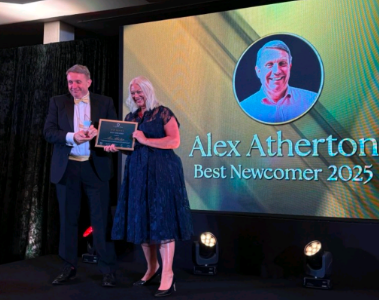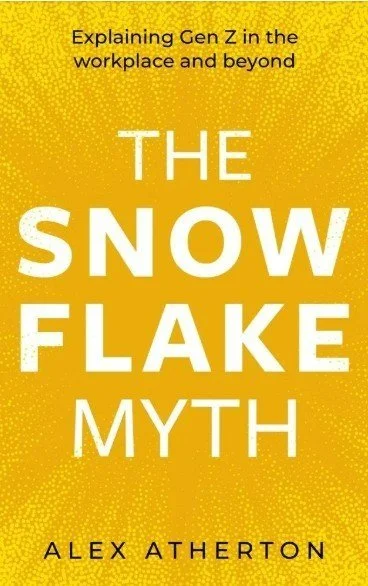Making Professional Development More Personal Gen Z Solutions No.4
‘We have weekly one to ones and we also have quarterly reviews. We like to sit down with a manager and look back on performance, but also discuss where you want to be in the next quarter. It's really helpful to have those feedback structures. We also get some transparency in terms of where we are all going and can contribute to it. It is really key because it helps you to develop’.
Gen Z
TL;DR:
Gen Z expects personalised professional development that goes beyond traditional training. Organisations should offer: bespoke learning opportunities tailored to individual career paths, explicit training on workplace etiquette and communication norms, (real-world interpersonal skills development and critical thinking practice for complex problem-solving. Start with broader, longer induction programs and regular feedback structures.
Why Gen Z Needs Personalized Professional Development
More Personal? How?
There are two key aspects to the word ‘personal’ but both are joined by a united theme. In short, I recommend organisations offer a very broad range of development opportunities.
Gen Z’s hunger for learning and improvement is well represented in their outstanding academic outcomes. Organisations who ensure their new employees can continue on this trajectory, and who also make clear what is on offer from the very start, will be in a strong position.
But this is not just about quantity.
Here’s four aspects to consider.
1. Offer customised learning paths and development options
Your younger employees will have some common needs but they will also expect some choice. These may reflect particular interests, or areas which may serve their future career. If you still ask the ‘where do you see yourself in five years’ time’ question at interview then at least provide the means for your new employees to work it out for themselves.
It is hard to overestimate the extent to which life has become more personalised over the course of a generation. There are zillions of internet rabbit holes to dive down, social media accounts to follow, and a streaming music collection to curate. The secondary school experience in England has not followed this experience, although the diversity of choice in higher education remains strong.
The growth of online learning and thought leadership via social media provides younger employees with a huge variety of choice beyond the workplace. Having said that, much of it is not free and it would be an abdication of duty to leave it to the employee.
The responsibility of the organisation is to find the best of what is out there, consult with staff on what they want, determine what is most useful for the next step of anyone’s professional development and allocate working hours for employees to pursue it.
On top of that is the kind of line management structure described in the quote at the top. However, traditional line management processes tend to focus on performance. The other key aspect, which is the primary focus of this blog, means that this model has severe limits.
2. Explaining workplace etiquette and professional norms to Gen Z
The other key aspect of personal development focuses on aspects of work where employers may not expect to spend so much time.
For a minute let’s go back to the job descriptions and, in particular, person specifications.
Gen Z’s academic outcomes may be far beyond those of previous generations, but that also comes as a result of a school curriculum which has focused on them to a great extent. Personal development may form part of the Ofsted inspection framework in England, but it does not contribute to examination scores. The gains in examination outcomes have not been matched by similar gains in personal development.
On top of that the pressure to achieve these outcomes has been a key factor in a disastrous deterioration in the mental health of teenagers. A NHS report in 2022 showed that 26% of 17 to 19 year olds in England have a ‘probable mental health disorder’. Five years previously it was 10%. Covid did not help but the 250%+ rise in this five year period is not just down to this.
Employers may find that expectations around working etiquette such as email conventions, dealing with social media notifications and taking personal phone calls need to be made explicit. As I have advocated elsewhere, Be Clear Be Thorough. As Gen Xers we developed them together as adults as the technology arrived after the beginning of our working lives. Gen Z did not, and they now learn it after they have been engaged in social media with their peers for years. There is a big difference.
Gen X managers should also be prepared to discuss their expectations with their colleagues, and not demand that life must remain as it was for them when they started. A stubborn reluctance to move with the times will likely create as much eye-rolling from Gen Z as anything else.
Managers may have more than a few ‘do I really have to?’ moments as they find themselves having to go through aspects of work they did not have to previously explain. Spare them (and you) the ‘you have a first class degree but you don’t know how to do X?’ type conversations. Ultimately if you want your Gen Z staff to know something, do not assume it will be learned by osmosis. It may not have been learned through work experience placements while at school either, they may be ‘expected’ but are not ‘statutory’.
3. Building real-world skills Gen Z may be missing
Your Gen Z employees may come to you with a far higher level of some technical skills, the ability to engage in electronic multitasking beyond your comprehension and, let’s not forget, qualifications but there may be other aspects that aren’t there.
Be prepared to train for them and to do so in a longer induction programme. Also be prepared for your Gen Zs to want to get this right more than you might envisage. They know they need high level interpersonal skills for their futures. You both have an interest in ensuring your employees are highly competent in ‘real world’ skills, so make sure the learning opportunities are on offer.
You do not need to tiptoe around this. When a much higher proportion of your communication has been asynchronous, which by definition means not in person, you have had less practice in live conversations about work or thinking on your feet. Gen Z has had a lot more practice in multitasking, but when it comes to a single, uninterrupted activity not so much.
Gen Z may be digital natives but that does not mean they necessarily have the precise digital literacy skills you need them to have from the beginning.
The fact that they have grown up with a variety of screens and a multitude of tools, does not mean they know how to use them all or how they might be applied to resolve a particular problem. Not every issue can be solved digitally.
An overreliance on tools can also mitigate against the kind of critical thinking employers need from employees. The emergence of everyday AI tools only amplifies this issue. An understanding of how to get a tool to operate and deliver the outcome you want is not the same as solving a problem. Sometimes a tool has to be created or adapted rather than just plucked from an electronic shelf.
4. Developing critical thinking and problem-solving skills
These are highly prized by employers and they form the basis of your decision making when hiring. I’m referring to research, problem solving, conflict resolution, communication, analysis and so on. Do not underestimate Gen Z’s hunger to work on their areas for development and to make progress faster than you imagined. Just because they may not have the basics in one key aspect does not mean they cannot quickly reach an advanced level with the right resources in place.
An individual’s antennae in separating fact from fiction has to be so much sharper these days. What actually is newsworthy as opposed to fake news? Filtering is so much more difficult these days but my experience is that Generation Z processes information at lightning speed.
Gen Z is not immune to the idea that a lot of time spent on social media may not have prepared them for an employer’s demands. They will want to know the scenarios they are going to come across, and how they might tackle them. Where that involves critical thinking skills which require judgement and intuition tell them. Give them an opportunity to practise. If the answer involved an algorithmic approach they wouldn’t have expected you to hire a human to do it anyway.
Remember that
The role of induction programmes and early career development programmes is changing. The organisations who are prepared to rethink the breadth and depth of what is on offer, and liaise with their employees as they do so, can expect to be rewarded for their efforts.
The ability to flick endlessly between different activities and having so many on the go at once may not necessarily be productive, but it is unlikely to be a barrier for your Gen Zs.
STOP PRESS
I was a winner at the 2025 Speaker Awards held in London last Friday.
A huge thank you to everyone for their support along the way.
How can I help you?
1. Talks, workshops and seminars - I am an award-winning speaker. My talks recruiting and retaining Gen Z, understanding Gen Z, overcoming the challenges of the multigenerational workplace plus those relevant to the topics below. Speaker showreel here.
2. My book The Snowflake Myth will be published in September 2025 - to receive a free chapter (when available 😬) please click here. You can pre-order the book here.
3. One to one coaching programmes for senior leaders who are swamped by their jobs so they can thrive in life. Click here to discover where you are on your journey from Frantic to Fulfilled? Just 5 minutes of your time and you will receive a full personalised report with guidance on your next steps.
4. Team coaching programmes - working IN a team is not the same as working AS a team and yet they are often treated as if they are the same. I help teams move from the former to the latter, and generate huge shifts in productivity and outcomes.




